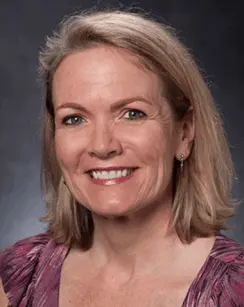 | 1 LU | HSW |
 | 1 LU | HSW |
Call to Action: Assess Current Spaces: Use the Spatial Proficiency Framework to evaluate one existing classroom or learning area, focusing on how well-being, academic talk, and intentional spatial planning are currently supported. Collaborate for Insight: Convene a small, cross-functional team (educators, architects/designers, and facility planners) to review your pilot evaluation, discuss gaps, and identify areas for quick improvement. Pilot with Purpose: Select one strategic classroom or learning space to implement agile, instructionally aligned furniture arrangements. Document the impact on teaching practices and student engagement, establishing a clear model for scaling school or district-wide.
Abstract: Flexible classrooms hold great potential, but their effectiveness depends on thoughtful planning and strategic alignment with instructional practices. This session provides attendees—architects, designers, and educational leaders—with practical insights into leveraging spatial proficiency to create dynamic, student-centered learning environments. Participants will explore actionable strategies focused on aligning instructional practices with three key areas from the Spatial Proficiency framework: well-being, academic dialogue, and intentional spatial planning. With tangible examples and straightforward guidance, attendees will leave equipped to immediately enhance learning spaces, driving deeper student engagement and instructional effectiveness.
Learning Objectives:
Educational Facility Implementation, Project Management/Project Delivery
Successfully delivering a project that meets the needs of the community, district, and students.

Jill is the Director of Education at VS America, where she leads initiatives focused on the strategic alignment of flexible classroom environments and spatial proficiency in educational settings. With extensive expertise in instructional design, spatial planning, and educational research, Jill collaborates closely with architects, educators, and school leaders to create dynamic, inclusive, and responsive learning environments. Her work emphasizes practical, data-driven strategies to enhance student engagement, well-being, and academic achievement. A recognized thought leader in spatial proficiency, Jill regularly contributes to professional learning workshops, conference sessions, and publications aimed at transforming the educational landscape through intentional and impactful design practices.

Hilary E. Hughes, PhD, is an Associate Professor in the Department of Educational Theory and Practice at the University of Georgia. With a strong commitment to justice and equity-oriented education, Hilary specializes in middle grades education, youth studies, feminist pedagogies, and phenomenology. Her scholarly interests center on empowering teachers as curriculum designers and fostering inclusive, responsive educational environments. Hilary holds a PhD in Middle Grades Education from the University of Georgia, an MEd from Colorado State University, and a BA in Communication and Theatre Arts from Mercer University. Through her research and teaching, she actively contributes to advancing equitable educational practices and preparing educators to cultivate just and meaningful learning experiences for all students.